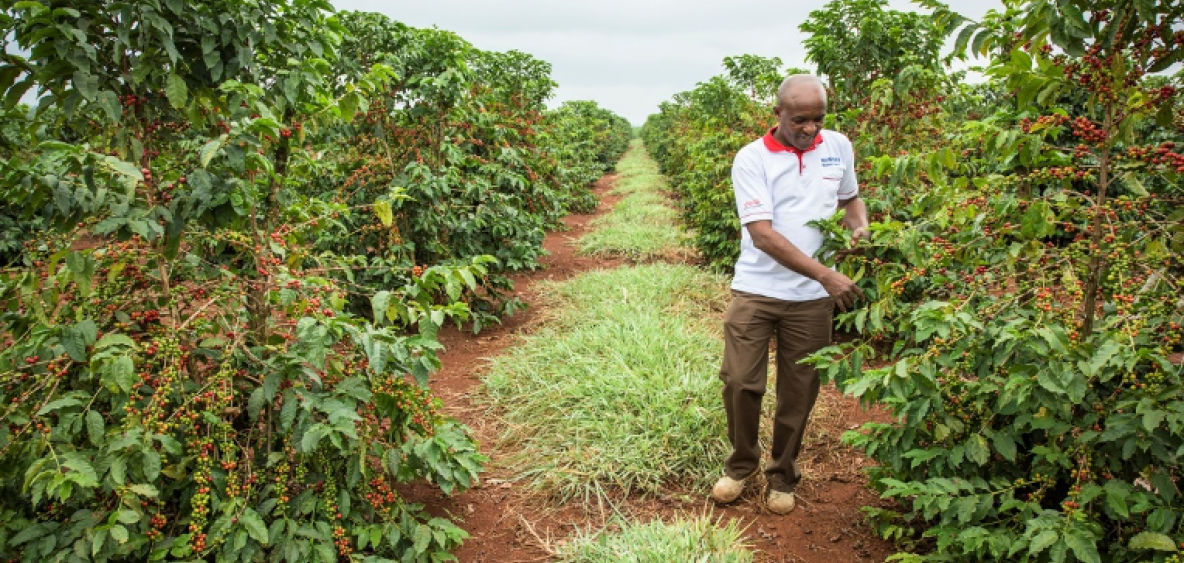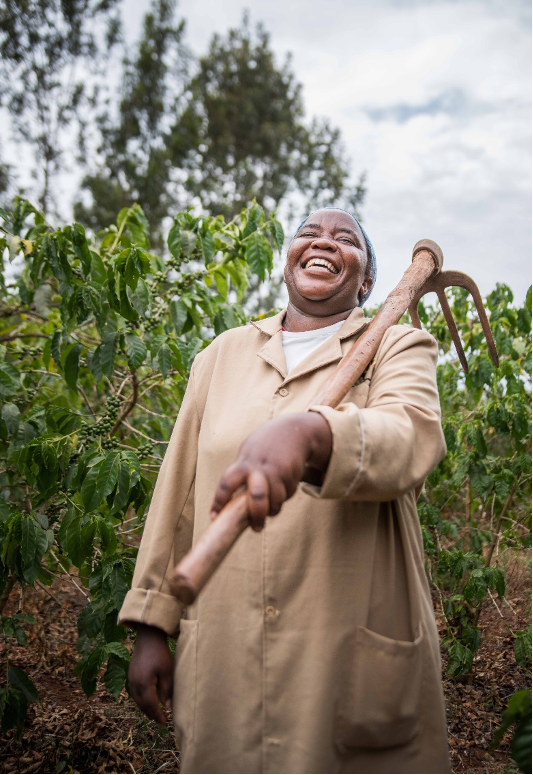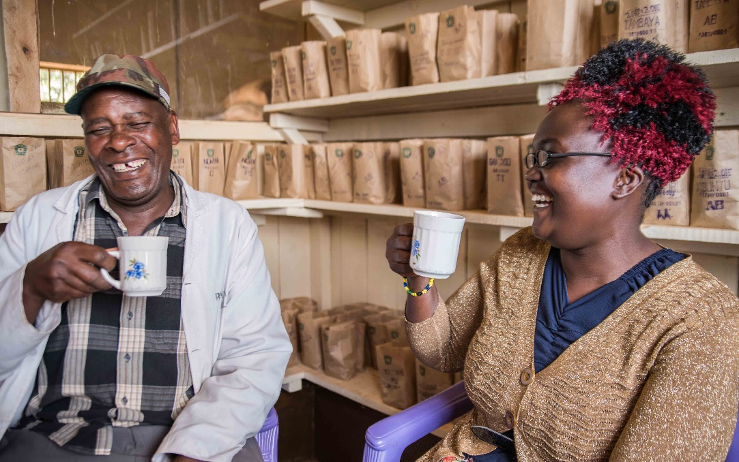 A well-conserved coffee farm in Upper Tana watershed, © Nick Hall
A well-conserved coffee farm in Upper Tana watershed, © Nick Hall In the Upper Tana watershed, the RFS Kenya project is helping smallholder coffee farmers adopt sustainable land management practices by providing capacity development and extension service support. So far, the scaling up of sustainable practices has helped more than 8,500 farmers receive a Rainforest Alliance Certification for their coffee.
Gladys Wangechi is a local success story. A small-scale coffee farmer in Mukurweini, Nyeri County, Gladys was awarded Kenya’s top “Women in Agriculture” award in 2017. The following year, she was named best farmer in the Upper Tana watershed.
Gladys’ secret to success? Her sustainable approach.
Gladys is one of the beneficiaries of the Resilient Food Systems (RFS) Kenya project, the Upper Tana Nairobi Water Fund. The project helps smallholder farmers, like Gladys, in the Upper Tana region adopt climate-smart and sustainable land management practices and access quality extension services. These approaches not only increase their yields but work to rehabilitate and conserve the Tana River basin, safeguarding freshwater resources for downstream users and surrounding agricultural communities.

Soil erosion linked to poor land management practices remains a key challenge in the region. Water runoff from the landscape transports top soil together with any chemicals, fertilisers or pesticides that the farmers may have used. The runoff from Gladys’ farm flows directly into the Tana River basin, which supplies 95% of the fresh drinking water to the people of Nairobi. Increased pollution and sedimentation of the river blocks the waterway, disrupting the river ecosystem, threatening biodiversity and reducing water flows to the city.
This is why the Upper Tana-Nairobi Water Fund has been working since 2015 to help thousands of farmers in the Upper Tana catchment area improve land management practices to safeguard the productivity of their land, increase yields, and improve the water quality for downstream Nairobi.
With the help of RFS-supported extension officers, Gladys learned how to terrace her farm and plant soil-stabilising crops to create a more resilient environment and prevent soil erosion. As more and more farmers adopt these practices, the watershed area has benefited from a reduction in soil erosion, improving soil fertility and water retention, which, in turn, is leading to higher coffee yields and increased revenues for smallholder farmers.
With the introduction of new sustainable farming practices tailored to the needs of farmers like Gladys, she and more than 8,500 other farmers have received Rainforest Alliance Certifications for their coffee. The Rainforest Alliance Certification is an internationally recognised accreditation awarded to farms, forests and businesses that meet rigorous environmental and social standards.

According to Ms. Kariuki, manager for Thunguri coffee factory, coffee production doubled after these sustainable measures were put into practice. “Over the past two years, while we have been undergoing the process for Rainforest Alliance Certification with the Upper Tana Nairobi Water Fund, we’ve noticed a big improvement both in the production and in the quality of the coffee,” said Ms. Kariuki. On Gladys’ farm, coffee plants went from producing only 3 kg of viable coffee beans annually to now yielding anywhere from 6 to 10 kg of coffee beans per plant.
The Rainforest Alliance Certification gives farmers like Gladys a tangible reason to adopt new conservation techniques. As demand for sustainable products becomes more popular globally, coffee farmers who receive a certification are able to access high-end consumer markets in the United States and Europe. For Glady, access to new markets has translated to more demand and more income.
“Coffee is gold,” she told the RFS project team, “I have increased my production and am now able to reinvest my income to new initiatives like poultry and pig farming”. The consistent improvement in yields has allowed Gladys to invest more time and money into maintaining these conservation practices on her farm – a win for Gladys and the environment.
Subscribe to our monthly newsletter to receive updates on stories directly from the field across all our projects, upcoming events, new resources, and more.